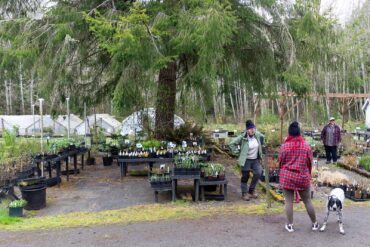 Specialty nurseries are a magnet for serious gardeners — and Woodbrook Native Plant Nursery, located in Gig Harbor’s backyard, is a favorite. With a timely message for gardeners concerned about garden resiliency for climate change, Ingrid Wachtler and her staff are ready to help.
Specialty nurseries are a magnet for serious gardeners — and Woodbrook Native Plant Nursery, located in Gig Harbor’s backyard, is a favorite. With a timely message for gardeners concerned about garden resiliency for climate change, Ingrid Wachtler and her staff are ready to help.
“Native plants are not necessarily low-water-use plants because many are wetland plants, as well as drought-tolerant plants,” Wachtler says, “but they are well suited to our cool, wet winters and warm, dry summers.”
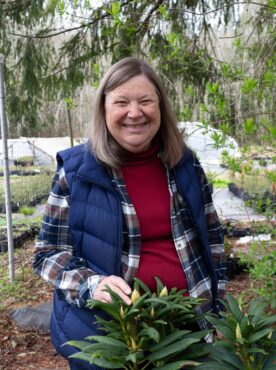
Wachtler and her husband, Bill, purchased 20 acres in Gig Harbor’s Artondale neighborhood about 30 years ago. They began by building a barn and selling Christmas trees, and over the ensuing years purchased adjoining properties and grew their business. They now have 40 acres with two wells and plans to build a home as well as another home for one of their children on the property.
Initially, the budding nursery business was only open by appointment, then on weekends, and now Wachtler and her staff keep the nursery open five days a week year- round. The nursery has become a leader in the propagating and selling of Pacific Northwest native plants.
Native plants can be a bit of a hard sell to novice gardeners, who are used to perusing the aisles of the big-box stores, where tables are stocked with lush-looking perennials and annuals fresh from a greenhouse. Native plants, while looking great in containers at certain times of the year, have periods of dormancy and don’t come into their own until planted in the home landscape. Most native varieties are also fairly slow growing, and it takes a while from propagating and fully rooting a plant in a 3.5-inch pot for the plant to reach the 1-gallon size.
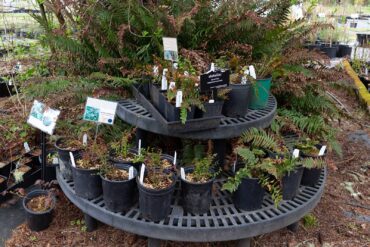 Growing Native Plants
Growing Native Plants
Why bother with native plants? There is a host of reasons, beginning with helping to preserve the natural ecosystem. Native plants provide nectar for pollinators, including hummingbirds, native bees, butterflies, moths, bats and birds. Small mammals depend on native plants for food and shelter. Some, such as the Douglas squirrel, have developed a codependent relationship with the Northwest forests. The squirrels harvest seeds from cones, but also eat fungi. The squirrel feces, spread around the forest, feed the vast mycorrhizal network that supports the plant and soil life of the forest.
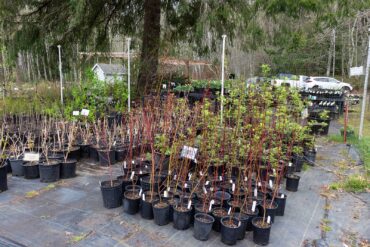 The native plants in the local environment evolved here and are suited to our climate and soil. When properly situated and once established in the appropriate soil, natives will do well with little care. They are drought tolerant and most can be grown with little or no additional fertilization and pesticides. They are rarely invasive as some nonnatives have proven to be.
The native plants in the local environment evolved here and are suited to our climate and soil. When properly situated and once established in the appropriate soil, natives will do well with little care. They are drought tolerant and most can be grown with little or no additional fertilization and pesticides. They are rarely invasive as some nonnatives have proven to be.
Like any other plant, natives need to be placed in the appropriate microclimate. Each plant thrives when it receives the correct amount of light, moisture and soil chemistry. Some plants prefer drier, sandier soils in full sun, while others thrive in wet, boggy soils and dark shade.
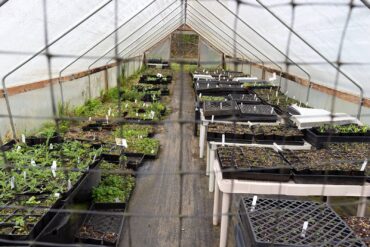 Our natives are uniquely adapted to the unusual Pacific Northwest climate, with its fairly wet winters and a steady supply of rain. Planting native shrubs and trees helps save money on water bills, as plants that are adapted to the dry summers don’t require additional irrigation once established. Since our summers have very little, if any, measurable rainfall, nonnative plants usually require irrigation to survive if they are from a climate that gets regular summer rainfall. Drought-tolerant nonnatives can handle our summers, but many don’t thrive in the wet winters and can die or suffer from root diseases.
Our natives are uniquely adapted to the unusual Pacific Northwest climate, with its fairly wet winters and a steady supply of rain. Planting native shrubs and trees helps save money on water bills, as plants that are adapted to the dry summers don’t require additional irrigation once established. Since our summers have very little, if any, measurable rainfall, nonnative plants usually require irrigation to survive if they are from a climate that gets regular summer rainfall. Drought-tolerant nonnatives can handle our summers, but many don’t thrive in the wet winters and can die or suffer from root diseases.
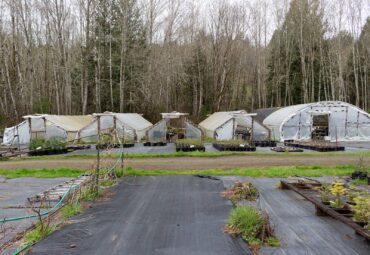 Catering to Different Needs
Catering to Different Needs
The rigors of running a small business are difficult in the best of times, but dealing with economic downturns and pandemics pose monumental hurdles to one also depending on Mother Nature. Maintaining a large inventory of plants can be a challenge for a small grower, but affable owner and manager Wachtler and her hard-working staff are able to meet most customers’ needs.
Among the staff is plant production manager Dana Bressette, who has a vast experience in working with native plants. Bressette has a master’s degree in urban horticulture and is working on an encyclopedia of Pacific Northwest plants. She is a writer, photographer and speaker who is available to talk about propagating and growing native plants.
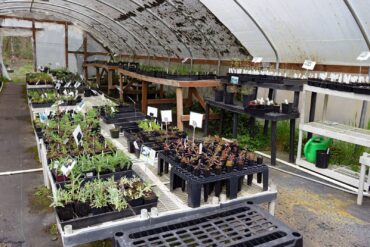 Chris Guyer is the assistant plant propagator and sales consultant. As a Master Gardener, Guyer has been working with native plants since 2013 and is available to help customers with making the best choices for their particular garden sites.
Chris Guyer is the assistant plant propagator and sales consultant. As a Master Gardener, Guyer has been working with native plants since 2013 and is available to help customers with making the best choices for their particular garden sites.
Mary Baker fills out the small staff by serving as a sales associate on busy days.
Getting through the pandemic was a challenge for most businesses, as supply lines slowed and customers were scarce. But for the plant nursery business, it was the opposite. As many people were unable to shop elsewhere or engage in indoor activities, they turned to their gardens for recreation and relaxation. The increased demand for plants and gardening supplies kept Woodbrook working to capacity to keep up inventory.
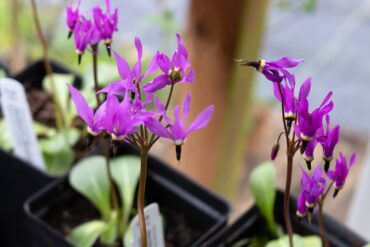 Demand has now returned to normal and the winter months are generally slow in terms of customer demand anyway. The nursery staff stays busy buying bare root stock and potting it up in a custom potting soil procured from Waldrath in Gig Harbor. Plants must be well-rooted before they are offered for sale. About one-third of the sales inventory is propagated on-site from seed or cuttings. Plants are nurtured in four of the five greenhouses on the property, with the largest one open to the public, filled with plants ready to be sold.
Demand has now returned to normal and the winter months are generally slow in terms of customer demand anyway. The nursery staff stays busy buying bare root stock and potting it up in a custom potting soil procured from Waldrath in Gig Harbor. Plants must be well-rooted before they are offered for sale. About one-third of the sales inventory is propagated on-site from seed or cuttings. Plants are nurtured in four of the five greenhouses on the property, with the largest one open to the public, filled with plants ready to be sold.
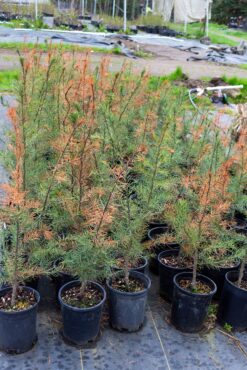 As soon as the calendar turns toward spring, retail customers flock to the nursery to find plants for their residential landscapes. In the fall, the nursery staff is kept busy by landscape designers and contractors ordering plants for their business customers. Most horticulturists agree that autumn is the ideal time for planting native plants, as the winter months give the plants an opportunity to develop their root systems when top growth is slow. Summer’s hotter temperatures can bring another slow period for the nursery, as it’s not the best time to plant.
As soon as the calendar turns toward spring, retail customers flock to the nursery to find plants for their residential landscapes. In the fall, the nursery staff is kept busy by landscape designers and contractors ordering plants for their business customers. Most horticulturists agree that autumn is the ideal time for planting native plants, as the winter months give the plants an opportunity to develop their root systems when top growth is slow. Summer’s hotter temperatures can bring another slow period for the nursery, as it’s not the best time to plant.
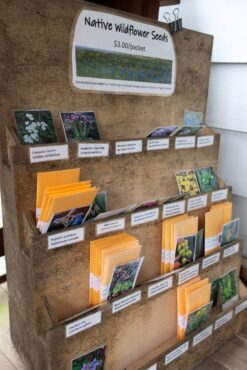 Woodbrook Nursery maintains an excellent website that lists plant availability and is updated almost daily. Each plant has a page that includes light and water requirements, height and width, a physical description and an availability table with the size of container and price of each. About 95 percent of Woodbrook’s inventory is native plants. A few nonnatives that are well adapted to our climate and soils are sold to complement the native selection. As the temperature tends to warm in Washington, Woodbrook brings in plants from Oregon and Northern California.
Woodbrook Nursery maintains an excellent website that lists plant availability and is updated almost daily. Each plant has a page that includes light and water requirements, height and width, a physical description and an availability table with the size of container and price of each. About 95 percent of Woodbrook’s inventory is native plants. A few nonnatives that are well adapted to our climate and soils are sold to complement the native selection. As the temperature tends to warm in Washington, Woodbrook brings in plants from Oregon and Northern California.
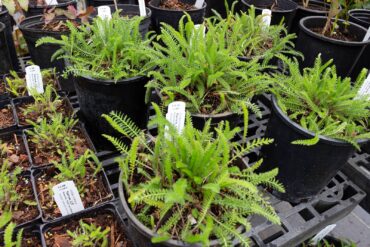 Wachtler is adamant about not using herbicides, fungicides or pre-emergents on her property. While using only mechanical means of pest control adds to the labor of her staff, she knows it’s better for the environment. She is concerned about the long-term effects of the commercial use of horticultural chemicals and their impact on the health of our natural environment and the people in it. Growing native plants in the home landscape will encourage birds and pollinators to visit. Birds will eat unwelcome insects, negating the need for pesticides. Also, most native shrubs are not attractive to deer and rabbits, whereas plants such as roses and tulips are very attractive to them.
Wachtler is adamant about not using herbicides, fungicides or pre-emergents on her property. While using only mechanical means of pest control adds to the labor of her staff, she knows it’s better for the environment. She is concerned about the long-term effects of the commercial use of horticultural chemicals and their impact on the health of our natural environment and the people in it. Growing native plants in the home landscape will encourage birds and pollinators to visit. Birds will eat unwelcome insects, negating the need for pesticides. Also, most native shrubs are not attractive to deer and rabbits, whereas plants such as roses and tulips are very attractive to them.
For someone working closely with the propagation and growing of plants for so many years, it must be difficult to identify just a few favorites, but Wachtler knows which ones she loves the most. “Probably the flowering currant, sword fern and Western trillium are at the top of the list — but really, anything in the greenhouse,” she says as she smiles and laughs her wonderful laugh.




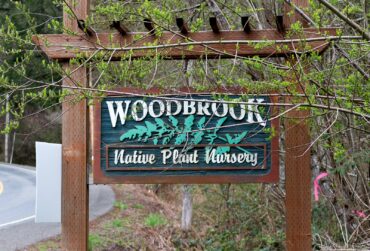



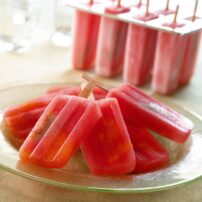

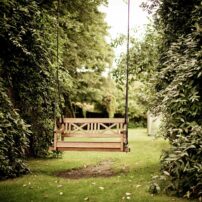
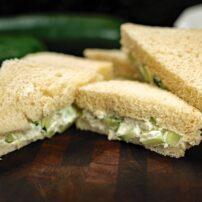
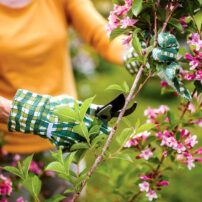




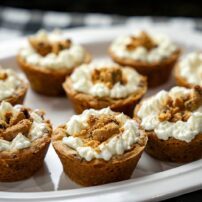
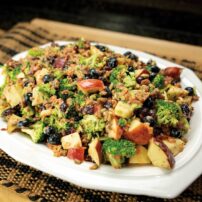
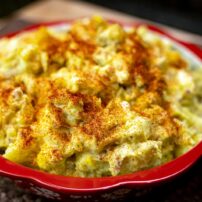
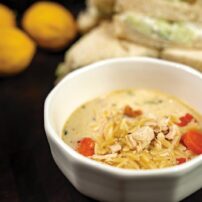

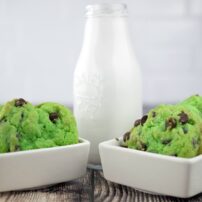







Comments